Maximum Health and Religion

What About Religion and Health?
Many people wonder about the relationship between religion and health. Religious people, by definition, have a clear worldview that includes advice to promote health. Health professionals and patients alike have considered the question “do religious practices promote health?”
There have been a number of serious medical research projects to inquire into this subject. There is now considerable evidence to support religious practices as having real-world positive effects on people’s health.
If this is true, why are doctors and patients alike reluctant to include religion in their conversations?
Since doctors are trained in the tradition of Western science, religion is seldom a subject of discussion at medical school or during hospital training. There are some valid reasons for this. Doctors need to maintain an objective state of mind to be able to care for patients. This objectivity is important, both to the doctor and the patient.
While maintaining an objective view is important, this can easily translate into a negative or even hostile attitude toward religion. I believe that encouraging people to practice their faith is critical to promoting health and healing. Why do I take this position?
One obvious reason is that religion teaches healthy moral habits. In today’s age of rampant genital herpes, Hepatitis C, and AIDS – religion’s insistence on sexual abstinence and monogamy takes on a new urgency. Rather than sounding like hollow advice, this is mandatory behavior in today’s world – just to survive. Religion also discourages smoking, alcohol consumption, and drug abuse. These teachings on lifestyle habits, taken together, promote health.
The book SELF-REFERRAL/MAXIMUM HEALTH is all about bringing ideals back to medicine. “Ideals?” you may think. “What ideals? Whose ideals? Aren’t doctors, nurses and others working with ideals already? What are these ideals, anyway? Now that’s a silly question. Don’t we already know what the ideals of medicine are?”
Ideals are our highest possible aspirations. Some ideals include ethical behavior, universal love and respect for all, and working for world peace. The world’s great religions teach these ideals. Because such ideals usually spring from our faith, they are among the strongest beliefs we have. They are the real inner force driving our lives.
Our personal list of ideals inspires us all. Perhaps one of the best statements about ideals came from a quote by Carl Schurz on a greeting card I received at the time of my college graduation:
Ideals are like stars: you will not succeed in touching them with your hands, but like the seafaring man on the desert of waters, you choose them as your guides, and following them, you reach your destination
We all have an instinctive desire to help other people who are having problems. Confronting such a situation, we make a choice: remain aloof and do not get involved, or know that person and find what you can do to help. The person helping and the person helped both benefit.


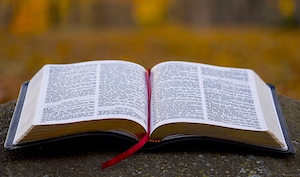
Ideals are our highest possible aspirations. The world's great religions teach these ideals. They are the real inner force driving our lives.

Medicine is Based on the Golden Rule
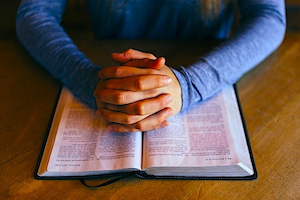

We are moving faster, but we never catch up. We are stressed, God. Is this the way You meant us to be?
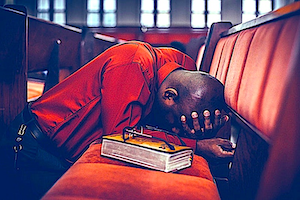

Medicine is based on the well-known ideal of the Golden Rule. “Do unto others as you would have done unto you,” we have heard. “Treat other people the way you want to be treated.” What demonstrates this ideal better than helping sick or injured people regain their health?
If people make an effort to live this ideal, their quality of life will get better. This improves marriages, families, nations, and – ultimately – the world. The Golden Rule also creates warm human relations and positive emotions – bringing health and healing.
Is addressing the idea of God or religion outside most patient’s thoughts or beliefs? One of the most reliable ways to gauge public opinion on anything is the Gallup Poll – which tells us that 89% of Americans believe in God or a universal spirit, and 74% consider religion to have considerable importance. These matters loom large, given that our aging society is likely to face health crises and end-of-life decisions in the near future – and need spiritual support.
Leaders in religious circles are keenly aware of the Adaptation Crisis that confronts modern populations today. Churches, temples, synagogues, and every center of religion deal with the stress of modern life and the toll it takes. In many situations, the support and guidance that religion provides people can be the difference between a triumph or a tragedy. The relationship between faith and surviving difficult challenges is well known, and people in any crisis of health avail themselves of healing help from God.
A huge part of the Adaptation Crisis causing today’s unprecedented stress is the unrelenting and frantic pace of life. Many Pastors, Rabbis, Imams, Priests and lay people are well aware of the problem. I am a Christian and attend church regularly. One Sunday, our Pastor included as a unison prayer the Order of Worship the following:
We are running so fast, God, and we don’t know how to slow down. We keep our calendars filled. We carry phones in the pocket and purse. We constantly check our voice mail, our email, and stay connected by fax and the Internet. We are busy and yet not satisfied. We are moving faster, but we never catch up. We are stressed, God. Is this the way You meant us to be?
Speak to us again your message of peace, of walking beside still waters, of refreshing our souls, of lying down in meadows of green.
Speak to our anxious hearts and spinning minds that think if we are not doing, then there is no being. Restore our balance, lighten our drivenness, and make holy our rest. In Jesus’ name. Amen
Finding peace and grounding our thoughts, emotions, and attitudes are central to religious experience. We need to reconnect with the central values taught through religious scripture and practice. One of the most common forms of religion is prayer.
Prayer is a conscious mental effort to address God and offer worship. People also use prayer to reach out to God and ask for God’s assistance in healing. Bringing scientific methods to bear to study the effects of religion on health is a necessary step if we are going to establish its usefulness. The questions skeptics ask are obvious. How much healing occurs from chance versus the effects of prayer? Can prayer be considered scientific in some way?
Prayer is Serious Medicine
Key to examining these ideas is the work of Dr. Larry Dossey. He is the former Chief of Staff at Humana Medical City in Dallas, Texas. He is an internationally renowned educator and lecturer on Body-Mind medicine and related topics. In 1988, he was invited to deliver the annual Mahatma Gandhi Memorial Lecture in New Delhi, India – the only Western physician ever given this honor.
Dr. Dossey’s exploration of the relationship between religion and medicine led to a lifelong career bridging the two fields. Dr. Dossey published Healing Words, a doctor’s inquiry into the role of prayer in health and healing. He served as co-chairman of the newly established Panel on Mind/Body Interventions of the Office of Alternative Medicine of the National Institutes of Health at Bethesda, Maryland.
Dr. Dossey reports that he left medical school with the impression that prayer was little more than superstition. There was no mention of prayer as having any role in medical practice. No one taught that it might be useful in healing.
After many years in clinical medicine, Dossey was surprised to find scientific evidence for a healing effect of prayer. As a result, he spent over ten years inquiring into the subject of prayer and healing. What did he find?
Much to his surprise, Dossey found that prayer works.
Dossey tells the story of Dr. Randolph Byrd, a cardiologist who is also a practicing Christian. Dr. Byrd wanted to study the effects of prayer on sick people. He designed a study to evaluate the role of God in healing. How did he do this?
Byrd studied 393 patients admitted to the coronary care unit at San Francisco General Hospital during a ten-month period. A computer randomly assigned each of the 393 patients to either a group that was prayed for or a control group that was not prayed for. The names of the group that was prayed for were given to home prayer groups.
Each person in the group that was prayed for had between five and seven people praying for them. Those who prayed received no instructions other than to pray for the hospital patient at least once a day. The control group had no prayers from the home prayer groups.
This was a carefully designed scientific study carried out with the same statistical rigor used in more orthodox medical research. The study was published in a mainstream, orthodox medical journal. What were the results?
Of the 393 patients included in the study, there were 192 patients in the group that were prayed for. There were 201 patients in the control group who were not prayed for. The group that was prayed for differed from the control patients in several important ways.
Those patients who were prayed for were five times less likely to need antibiotics and were three times less likely to suffer fluid in the lungs. No patients in the group that was prayed for needed machine assistance to breathe, while 12 of the control patients required intubation and a ventilator. Fewer people in the group that was prayed for died, although the difference was not statistically significant. Dossey writes:
“If the technique being studied had been a new drug or a surgical procedure instead of prayer, it would almost certainly have been heralded as some sort of “breakthrough.” Even some hard-boiled skeptics agreed on the significance of Byrd’s findings.”
Dr. William Nolan, author of The Making of a Surgeon and a highly respected medical authority, was impressed by Byrd’s findings. Nolan, who wrote a book debunking faith healing, noted the strength of Byrd’s data. “Is sounds like this study will stand up to scrutiny . . . maybe doctors ought to write orders ‘Pray three times a day.’ If it works, it works.”
Does this mean that prayer is a substitute for modern medicine? No, of course not. What this does mean is that doctors and patients alike need to take prayer seriously. Doctors can encourage their patients to pray for themselves and others who are sick or injured.
What about the overall health effects of being religious? One study examined a large group of people facing health challenges including amputation of a limb, polio, breast cancer, prostate cancer, and spinal cord injury. Religious patients reported comfort and strength from their faith and believed they would be fine despite their illness. They were also less stressed about the future. The non-religious group had a significantly poorer quality of life and less life satisfaction than the religious group. Their social, functional, and emotional well-being were considerably worse than the religious patients.
Another study was carried out on a large group of residents in an extended living facility. Attendance at weekly religious services was followed for six years. Health was monitored as was religious service attendance.
After six years, 22.9% of the religious service attenders had died versus 37.4% of the non-attenders. Survival rate of the religious residents thus was 14.5% better for the six-year period. This indicates a survival advantage over time for the religious service attenders. Again, religion was shown to have a beneficial effect on health.
The positive effects of religion and prayer on healing should be no surprise. When people make the choice to fill their thoughts and actions with love, should we not expect to create an internal environment of love? And would not that love create health?
I believe doctors should encourage their patients to practice their faith. Regular attendance at church, synagogue, or temple is a good idea. There we hear our bedrock beliefs and rules for positive, life supporting behavior. These reminders create harmony, happiness, and successful living. Encouraging prayer is a good idea for the same reason. In this sense, I know that medicine and religion can work together effectively.
When we work toward MAXIMUM HEALTH we are striving to become as healthy as we can possibly be. A key part of that work is applying our religious practices – seeking God in silence, knowledge of scriptures, and application of same. Adding that to the other practices taught here will surely lead you to MAXIMUM HEALTH !
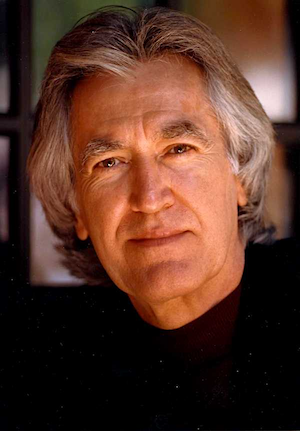
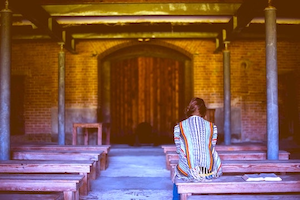

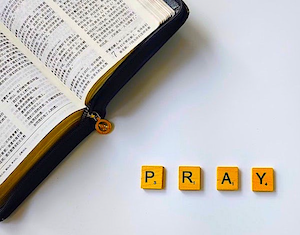
Maybe doctors ought to write orders 'pray three times a day.' If it works, it works.

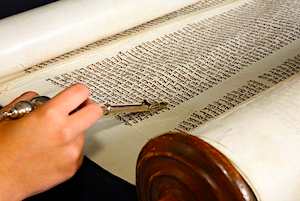
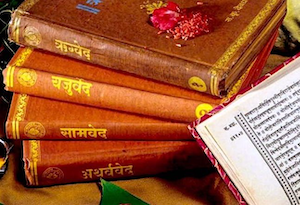
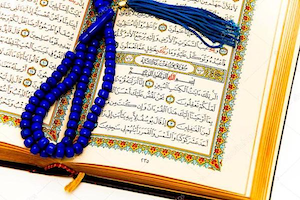
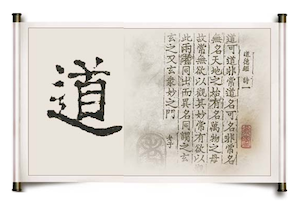
Full Disclosure

